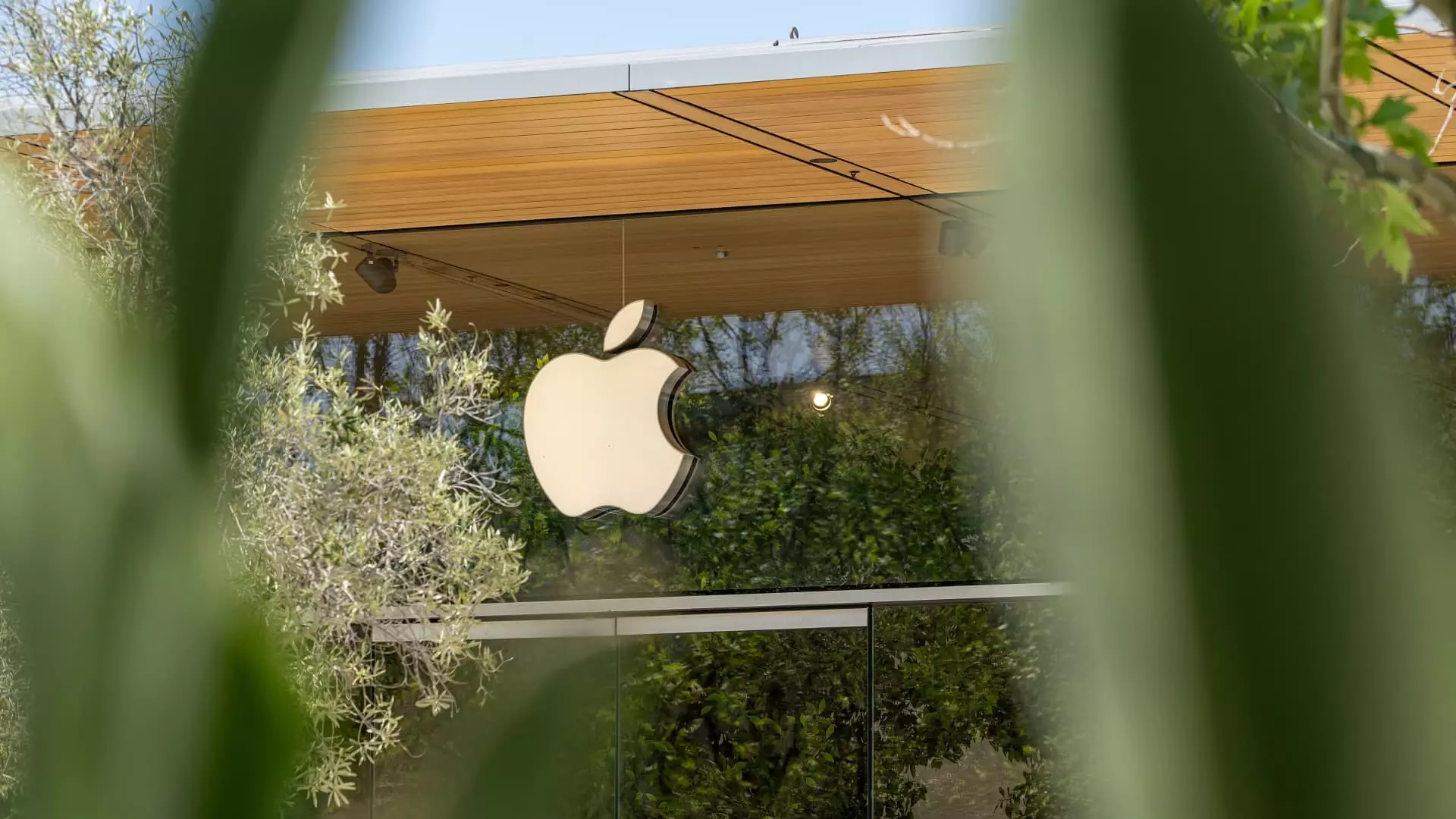In the ever-evolving landscape of technology and digital commerce, the rivalry between Apple and Epic Games has taken an intriguing turn. The recent courtroom drama shines a light on the contentious issue of in-app transaction commissions, a topic that encapsulates the battle for fair competition in the App Store ecosystem. Apple’s request to pause a court ruling that mandates changes to its linking policy demonstrates the company’s reluctance to relinquish its stronghold on app revenue, despite legal pressures.
U.S. District Judge Yvonne Gonzalez Rogers’ recent findings indicate that Apple has not adhered to past court decisions, suggesting a pattern of non-compliance that raises serious questions about the company’s business practices. Her most recent ruling aims to dismantle Apple’s rules that restrict developers from directing users to external payment platforms—an action that many argue is necessary to create a more open and equitable marketplace. The judge’s call to halt Apple’s commission on app purchases made via external links marks a significant shift in how digital transactions could be structured going forward.
Financial Implications and Developer Dynamics
The stakes are notably high for Apple, which has estimated that complying with this ruling could cost it hundreds of millions, if not billions, annually. This figure underscores the company’s dependence on a profitable ecosystem driven by app sales and commissions. Apple’s assertion that the changes threatened by the ruling would diminish consumer choice seems disingenuous at best; the reality is that it pivots around maintaining profitability rather than fostering a competitive landscape that benefits developers and consumers alike.
For developers like Amazon and Spotify, the court’s decision represents a golden opportunity to break free from Apple’s financially taxing ecosystem. They can now potentially redirect users to their own websites for purchases, effectively bypassing the commission that Apple charges. The practical implications for developers are profound; not only does it empower them to reduce costs, but it also opens doors for innovative approaches to app monetization. This newfound freedom can catalyze a wave of creativity in app development that emphasizes user experience over strict adherence to Apple’s commission model.
Epic Games and the Push for Change
Epic Games, led by its outspoken CEO Tim Sweeney, continues to play a pivotal role in this battle. Sweeney’s declarations following the recent ruling speak volumes about the aspirations of many developers yearning for a shake-up of the status quo. “This forces Apple to compete,” he stated, encapsulating the essence of the developers’ fight against what they see as monopolistic practices by Apple. Epic’s planned software update aimed at simplifying payment linkages serves as an essential tool in leveling the playing field against a tech giant that has been resistant to change.
Despite Apple’s claims of compliance with previous court orders, the ongoing legal troubles suggest a fundamental misalignment between the company’s business practices and the court’s expectations. Rogers’ statements regarding Apple’s misleading actions highlight a lack of transparency that damages its credibility, putting the company in a precarious position as it seeks to challenge the recent ruling. Apple’s argument that the new orders are punitive, rather than remedial, reflects its struggle to reconcile profitability with its legal responsibilities.
The Future of the App Ecosystem
The ramifications of these legal battles extend far beyond the immediate financial implications for Apple and Epic Games. The outcome could redefine the App Store landscape, reshaping how digital marketplaces operate. If developers gain the ability to sidestep Apple’s traditional revenue model, it could result in a more competitive environment, prompting Apple to innovate and enhance its offerings to remain relevant.
Such changes could also serve as a catalyst for regulatory scrutiny beyond the tech industry’s confines, raising foundational questions about the power dynamics between platform providers and app developers. As we move forward, the stakes will only escalate. The potential realignment of revenue distribution could empower developers and create a more diverse digital economy, challenging Apple’s long-standing monopoly in the App Store realm.
The ongoing legal saga underscores a transformative moment in digital commerce, one that may chart new pathways for an industry desperately in need of reform. As the case proceeds through the courts, it remains to be seen whether Apple can adapt to these changing dynamics or whether it will continue to fight tooth and nail to preserve its established interests.


Leave a Reply